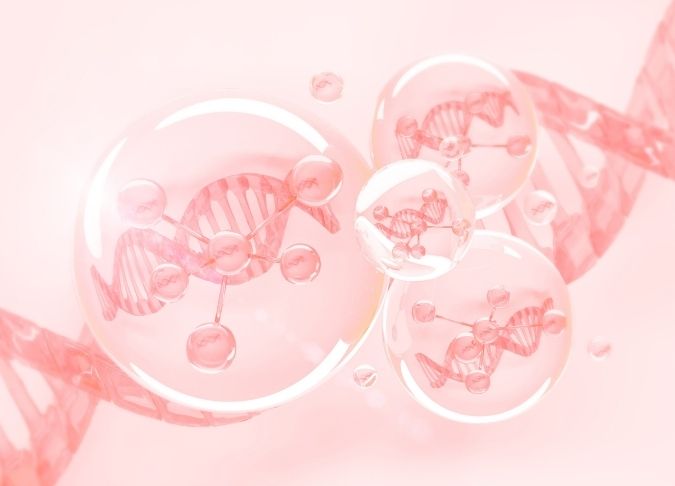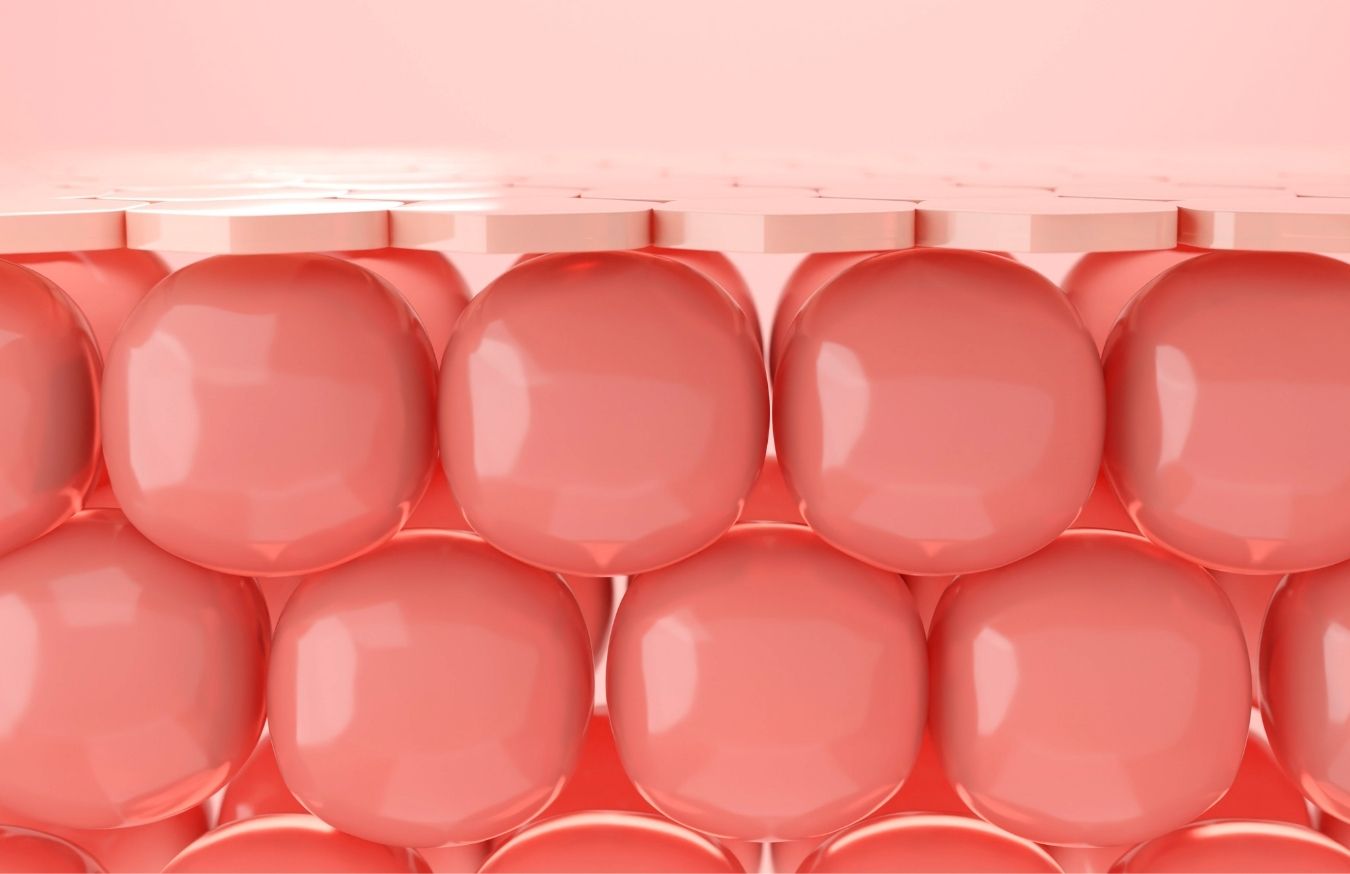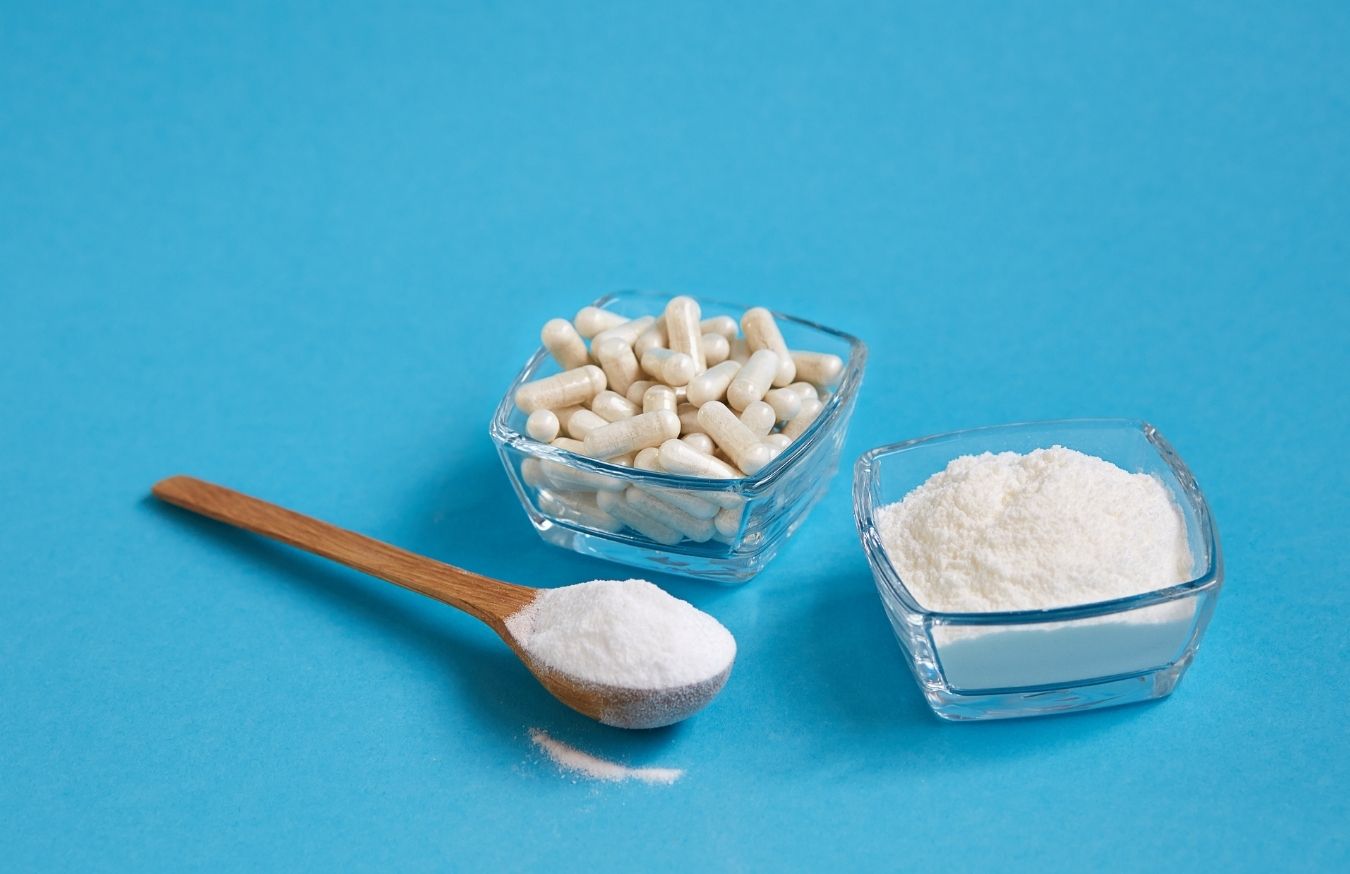The Ultimate Guide to Collagen
The guide to collagen
More than skin deep – collagen is the essential protein that supports your skin, joints, brain, and beyond. Understanding it is the first step to building a body that thrives & is strong, supple, and resilient.
Understanding Collagen
Collagen is your body’s structural powerhouse, making up about 30% of total protein. It supports skin, joints, organs, and even brain tissue by keeping connective tissues firm, hydrated, and elastic. It also plays a quiet yet powerful role in cellular repair and visible ageing. In an average 80 kg adult, around 5 – 6 kg is pure collagen – a testament to its critical role in total body function.
- Most of your collagen comes from four key types:
- Type I (skin, bones, tendons)
- Type II (cartilage)
- Type III (blood vessels, muscles)
- Type III (blood vessels, muscles)
- Type IV (eye lens)
Collagen helps prevent common signs of ageing, including skin sagging, wrinkle formation, joint instability, and a loss of tone and flexibility.

Where Collagen Works In The Body
Collagen runs deeper than your skin – it forms the internal scaffolding that holds your body together, supporting everything from blood flow and joint mobility to bone strength and organ resilience.
- Collagen plays a key role in all four types of connective tissue:
- Liquid, like blood and lymph, which transport nutrients and remove waste.
- Fibrous, like tendons, ligaments, and fascia, providing strength and flexibility.
- Gel-like, like cartilage, cushioning joints and reducing friction.
- Solid, like bones and organs, offering structure and protection.
Beyond structure, collagen supports healing, immunity, and the integrity of vessels and organs. It’s also essential to brain and nervous system health, with connective tissue making up most of the spinal cord and white matter.

Connective Tissue and It's role in Ageing
Connective Tissue's role in Ageing
Connective tissue is more than structural – it plays a vital role in healing, immunity, and the overall function of organs. As we age, our integrity naturally declines, which can accelerate visible ageing and weaken internal systems. Supporting and strengthening connective tissue helps maintain skin elasticity, encourages cellular repair, and protects the body from the inside out.
Ageing Process
As we get older, our connective tissue naturally loses vitality. This decline reduces the body’s ability to repair itself, weakens structural support, and leads to visible and internal signs of ageing.
What speeds Ageing?
Environmental toxins, radiation, stress, and nutrient deficiencies all accelerate connective tissue breakdown. These factors cause mutations, tissue damage, and faster cellular wear.
Slowing the Ageing
With targeted nutrition and support, connective tissue can be strengthened and rejuvenated – helping to slow the ageing process and improve long-term health and resilience.
Collagen in the Brain and Beyond
Collagen-rich connective tissue plays a critical role in your brain, nervous system, and detox pathways. The brain and spinal cord are largely made of connective tissue, and this same tissue also stores most of the body’s toxic load.
As we age, collagen structures become less efficient, contributing to reduced clarity, slower recovery, and weakened defences.
- Key Facts on Collagen & the Brain:
- 85% of the brain and spinal cord is made of connective tissue
- 90% of toxins (e.g. heavy metals, industrial chemicals) accumulate in connective tissue
- At birth, less than 1% of the body is made of aged cells
- By age 10, aged cells start to increase – impacting vitality and function

Low Collagen: Signs & Solutions
Low levels of collagen can show up in your skin, joints, bones, and even your eyesight. Here are some of the most common signs of collagen loss and the nutrients your body needs to rebuild it from within.




